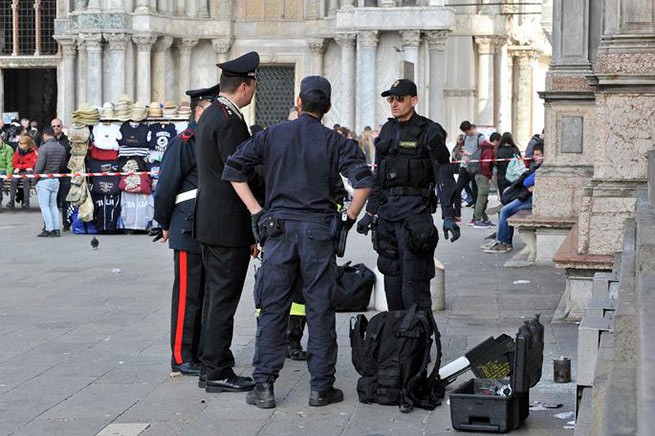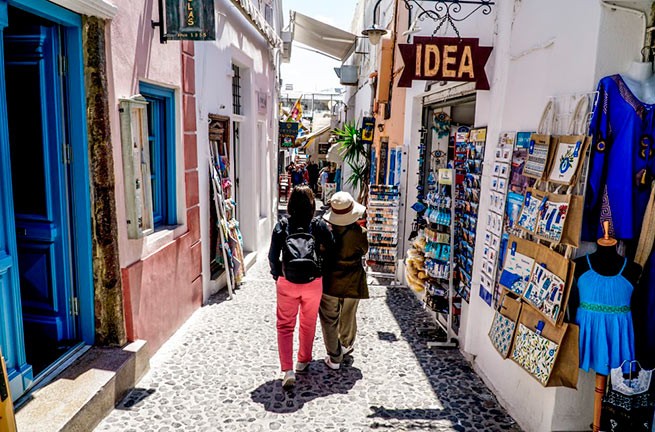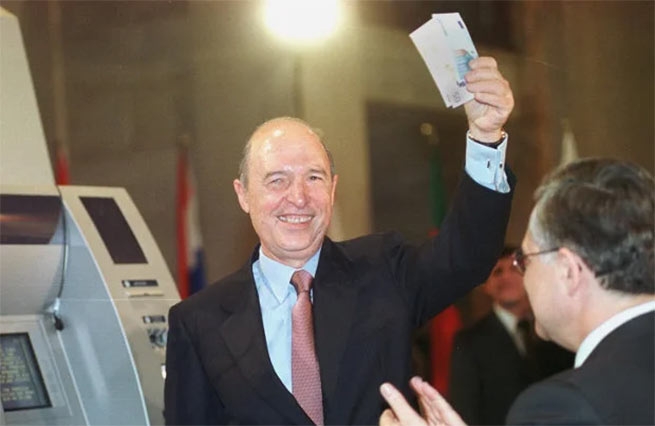When Greece adopted the euro on January 1, 2002, it had the following economic indicators: On December 31, 2001, at exactly 12 am, its debt was 151.8 billion euros, or 103.7% of GDP, with a GDP of 146.4 billion euros .
Of the 151.8 billion euros that made up the country’s total debt, only 37.9 billion euros were in foreign currency, and as a percentage of GDP, they amounted to 25.88%.
The rest of the debt was in drachmas, which the country issued under its own law, and so this debt was both national savings and risk-free, because a country that issues its own currency will never go bankrupt.
Thus, in fact, the actual debt of the country until midnight on December 31, 2001 was only 25.88% of GDP, or 37.9 billion euros. The implication is that this debt was fully sustainable.
The budget was also in deficit, private debt reached 95 billion euros, unprecedented for Greece since it became a state, and the external balance was also in deficit.
But at 12:00 am and 1 second, the year 2002 came and Greece entered the Eurozone. At this very moment, the €151.8 billion debt was fully converted into foreign currency debt, the euro. Just like all other deficits and private sector borrowing was converted into foreign currency.
Never in the recent history of Greece has there been such unanimity, such unity of people and leadership for Greece to enter the Eurozone. Who does not remember the smile of Mr. Simitis demonstrating the euros he had just withdrawn from an ATM, the Governor of the Bank of Greece, Mr. Papademos, crying with joy, and the bankers congratulating each other a little further away. They were the only ones who understood what had happened. They became the masters of Europe. They became partners of the eurozone states. They will now claim a larger share of each country’s GDP as they will issue money from now on. The real masters of the eurozone.
Politicians and people, rejoicing at the great success of Greece, which adopted the euro, forgot that they had just converted a debt in their own currency into a foreign currency – the euro. No one thought that now we would have to pay interest and debts in unprecedented amounts since the founding of the Greek state, which from now on will have to be repaid in euros. Where and how will they find the euro in the future to set the Greek economy and the country in motion to meet their debt obligations, since from that moment the debt began to grow. So it was only a matter of time before the country went bankrupt for the 5th time in its history and always with foreign currency ((1828, 1843, 1893, 1993, 1932 with gold, 2010 with Euro).
But we were told that there are no crises in the euro system (Moraine Cyrus being will be abhorred – God turns away from the one he intends to destroy).
What can Greece do? Given these facts, without monetary sovereignty and all that it implies, a prudent ruler should have canceled the country’s entry into the eurozone, or the next day, while the people want the euro as their currency, pursue a different policy that is compatible with the euro model, and not expansionist policy until 2008. The country voluntarily entered the system described in the Maastricht Treaty, where “there is no salvation, no way out, no bankruptcy.”
Which policy should be followed and what success could it achieve in the conditions of the euro:
- Aggressive export policy.
Problems: negotiations for the country’s accession to EU and the Eurozone have resulted in the country having a weak industrial base, limited agricultural production, hence low productivity and products that are not internationally exportable. At the same time, the services provided were not internationally competitive. Indeed, it was widely believed among the Greek elite that the country would become a country of high quality services, and that it would not need industry and agricultural production. - Introduction of measures to reduce imports.
Problems: non-compliance of measures with EU standards. - Tourism.
Problems: limited capacity due to strong competition, and everything that is consumed in tourism is mainly imported. Tourism is not associated with limited Greek production. - Direct foreign investments.
Problems: limited capacity, strong international competition. - Foreign money transfers.
Problems: few who want - Privatization of state property.
Problems: some types of property were sold without clear procedures. Limited interest. - foreign aid.
Problems: unlikely. - Negotiations to extend the maturity of the country’s loans.
Problems: unlikely. - In this impasse, there was another possibility. Continued borrowing. This policy was followed…
Problems: It never even occurred to them that this policy could have such a painful end as it had. Why didn’t it occur to them? Because there can be no crisis in the euro model.
We were told that the free labor market, the free market for goods and services, and the free market for money are self-regulating mechanisms. This is also the definition of the ideal globalization that is embodied in the existence of the euro. Ideal globalization exists only in the Eurozone.
The country remained in the euro through borrowing, not only from the public sector, but also from the private sector. Who did this? Who gave loans to a country that could not carry out any policy? Who issued loans to citizens and enterprises that do not have creditworthiness? But the ECB, the banks and the politicians kept their commitments, left, right, center and in every other shade.
And so we got to 2010, when the Troika came, memorandums were introduced, and the situation became even worse …
Spyros Stalias, economist.
Email address is being protected from spambots. Javascript must be enabled in your browser to view the address.
New York 31/12/2022







More Stories
Today the world remembers the accident at the Chernobyl nuclear power plant
Poll: which European countries are ready to defend their homeland to the last
K. Mitsotakis announced readiness for the fire season